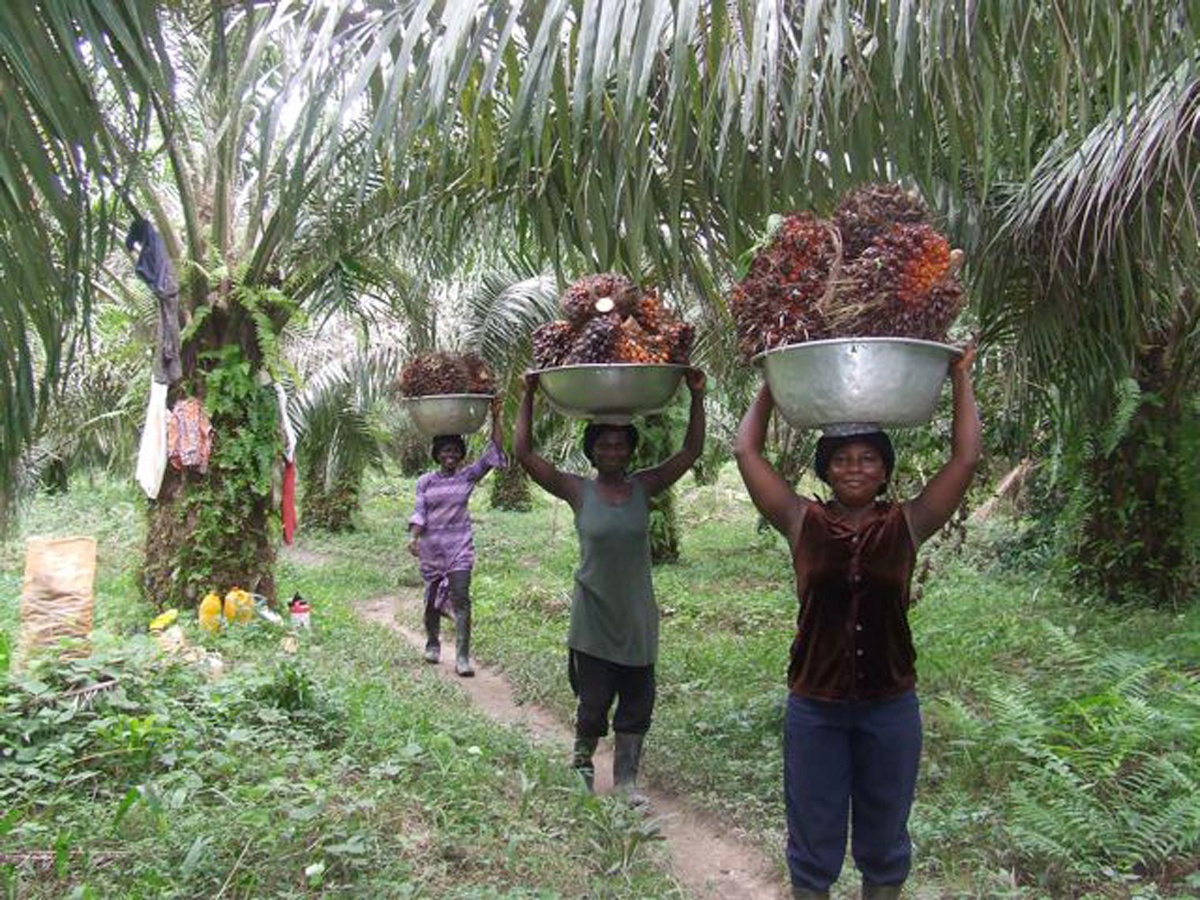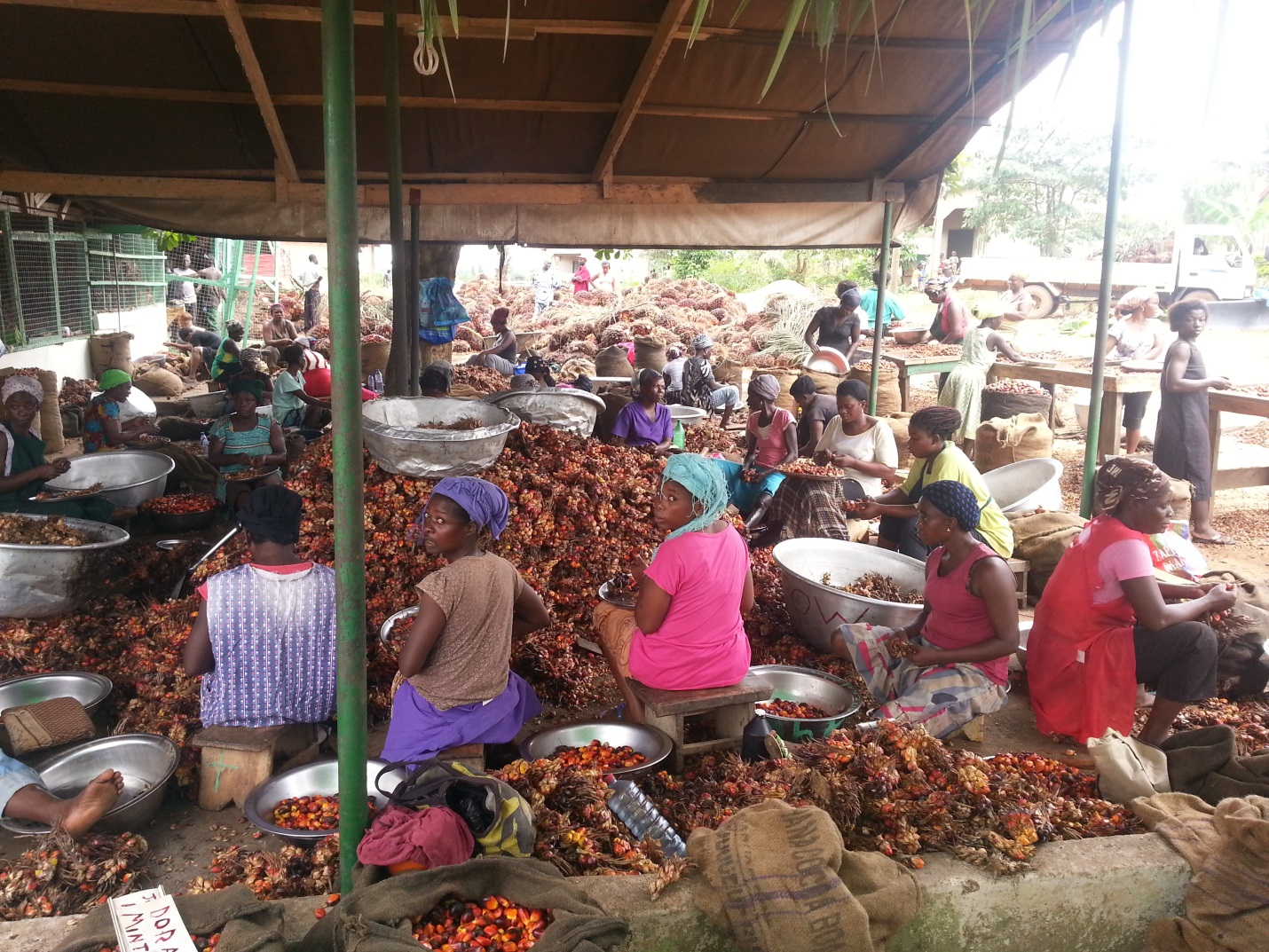
Serendipalm employees in Asuom, Ghana. Photo credit: Dr. Bronner’s.
One hundred miles northwest of Accra, Ghana, sits Asuom, a village of surprising and beautiful contrasts and contradictions.
The vermilion clay earth and rust-tin roofs in Asuom pop in contrast to the verdant greens of forests nearby. But it’s within these forests that an even more unexpected paradox exists: large, splayed trees producing sustainable palm oil. Four thousand acres of trees are cultivated by the 670 farmer members of Root Capital client Serendipalm – the world’s first, and largest, fair trade and organic certified palm oil company.
Serendipalm is setting an example of sustainability in one of the world’s most environmentally damaging agricultural industries. The World Wildlife Fund estimates that “more than a third of large-scale oil palm expansion between 1990 and 2010 resulted in direct forest loss.” Palm oil plantations, mainly in Indonesia, Malaysia and Papua New Guinea, have cleared a total of nearly 13,500 square miles of critical habitat for endangered species like forest rhinos, elephants, tigers, and orangutans and, in some cases, have even displaced families from their homes.
But Serendipalm is the anthithesis of the industry norm. It was established in 2006 – without clear-cutting or deforestation – by sustainable personal care products pioneer Dr. Bronner’s to demonstrate that palm oil could come from sources that contribute to rural development in a just and sustainable way.
Before Serendipalm took roots in Asuom, there were largely two types of oil palm farmers in the region: those who, reliant on pesticides to increase their yields, regularly suffered from chemical-related illness, and those who couldn’t afford chemicals and were stuck in a vicious cycle of low yields and unsustainable incomes.
Today, Serendipalm members receive regular trainings on organic practices that have significantly increased their yields. In addition to higher production, they also receive a premium price for their organic palm fruit, which is 10 percent above the local market price. Farmers also benefit from Serendipalm’s free organic fertilizer and interest-free microloans for locally-adapted, high-yielding seedlings – which will help families secure a reliable source of income for years to come. Since late 2011, Serendipalm has helped farmers plant over 40,000 oil palm hybrids across 650 acres of member-owned or leased land.
At its main processing mill, Serendipalm employs over 240 employees – 90 percent of whom are women. Wages for all employees are 25 percent above comparable local wages, and the company also provides free health insurance for each worker.

Workers at Serendipalm’s processing mill. Ninety percent of the company’s employees are women — many of whom are widows and single mothers.
Root Capital became Serendipalm’s first external lender in 2014, and continues to provide the company’s primary source of financing. Our loans help the company make timely payments to its farmers and grow its operations. In the process, we’re making a small, but powerful, contribution by helping Serendipalm serve as a model for reducing palm oil production’s pressure on fragile ecosystems worldwide.

What do you think?